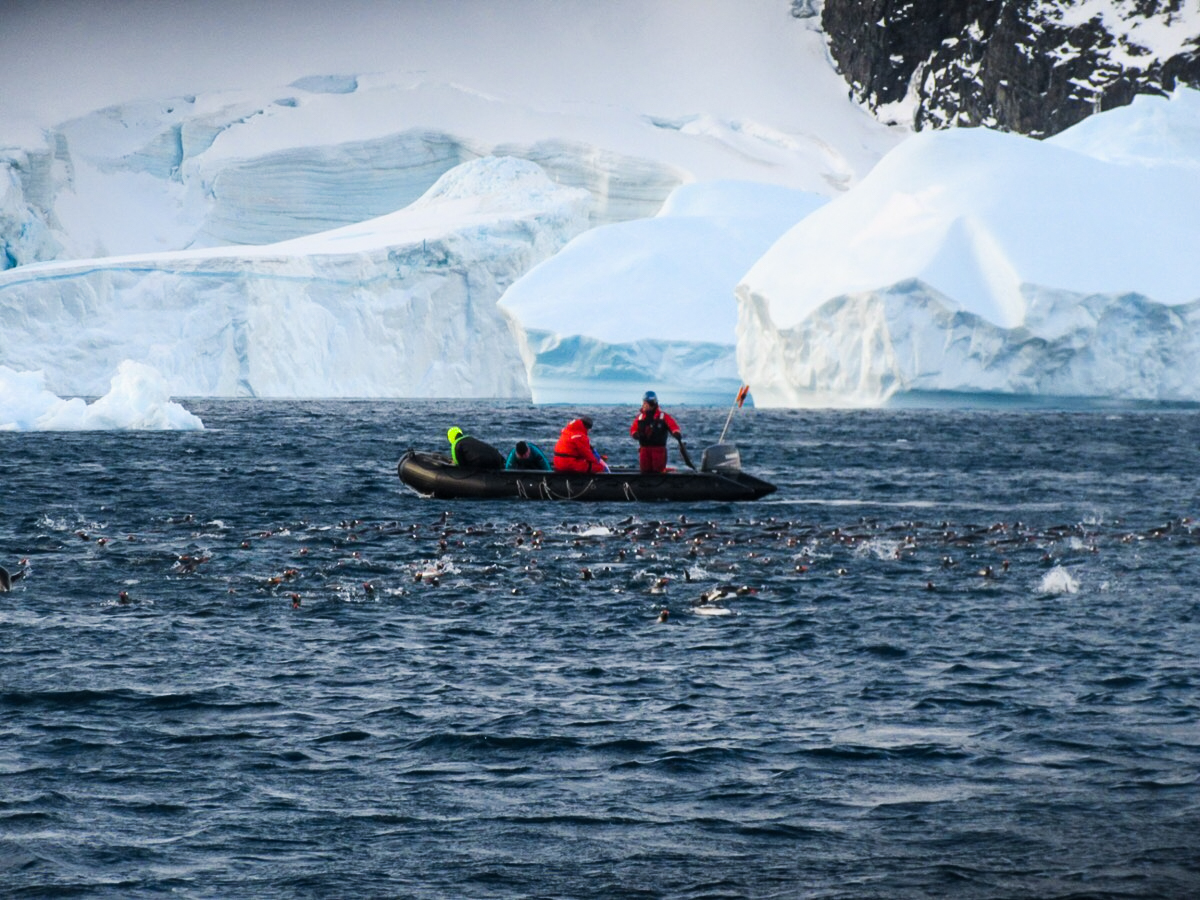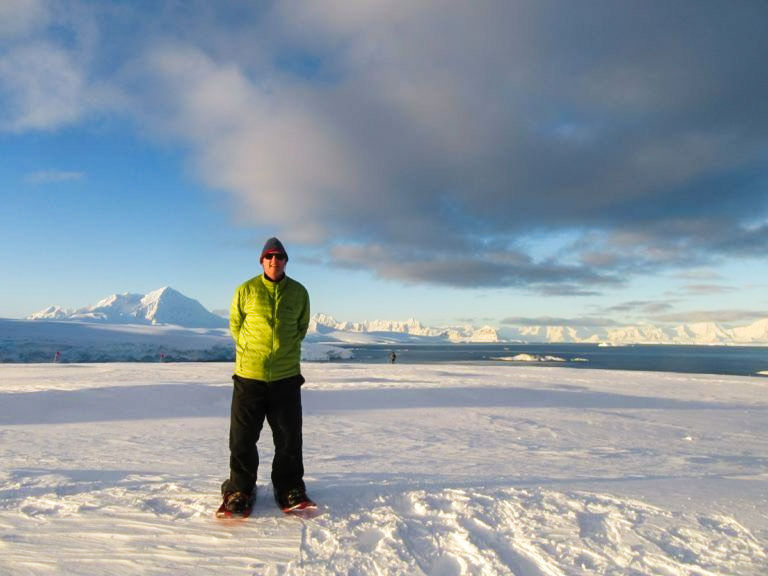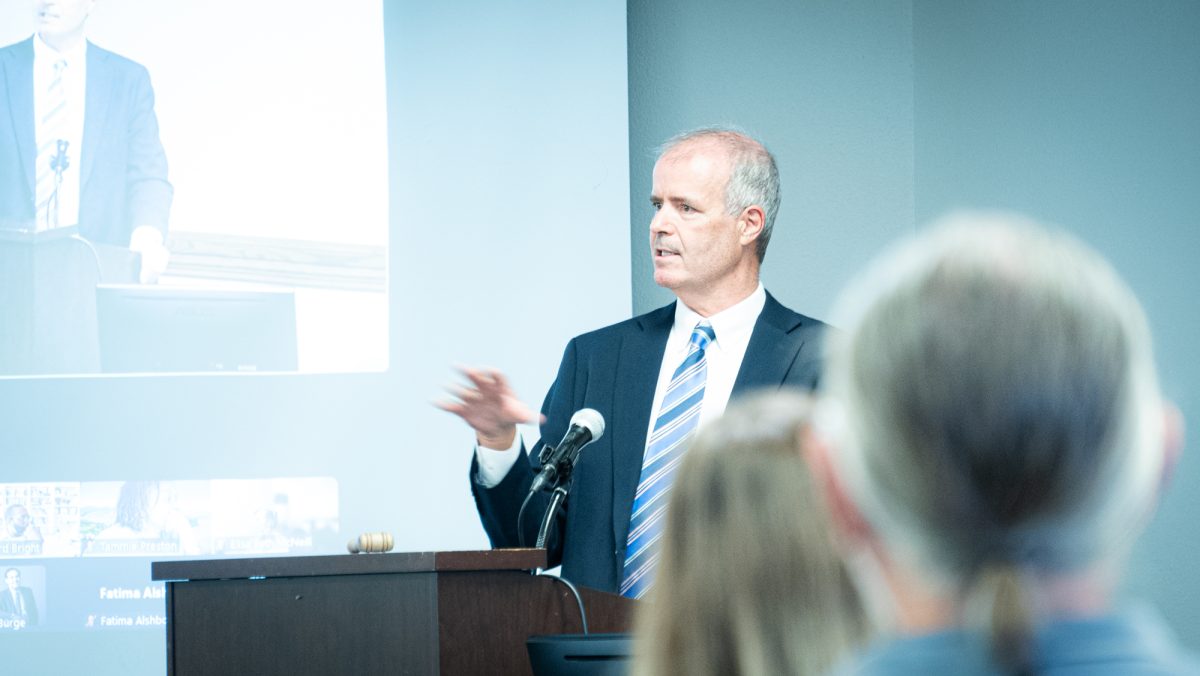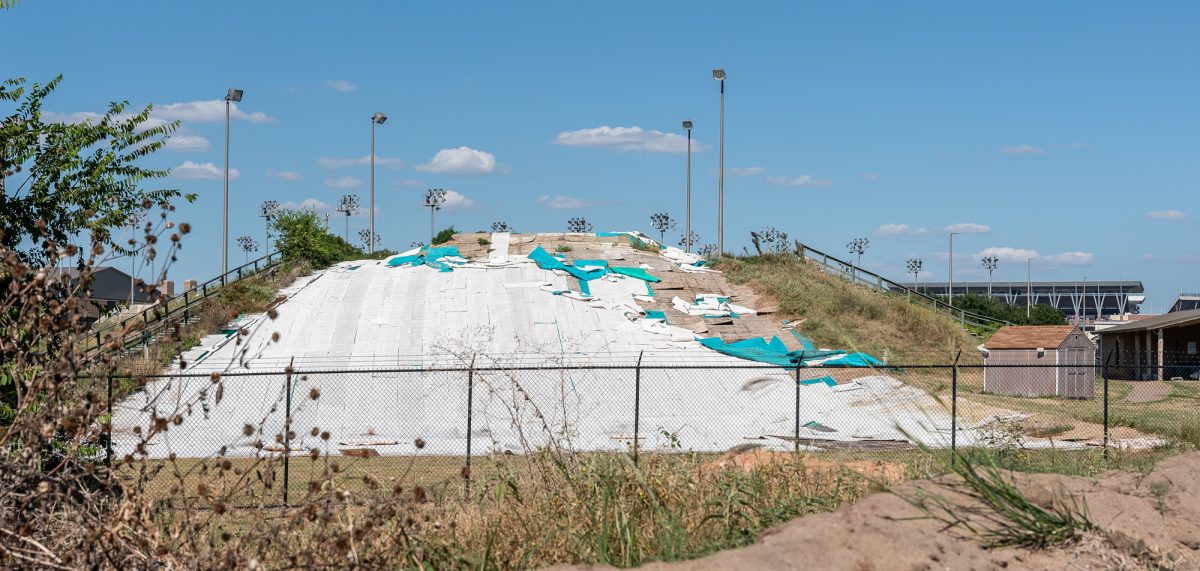Andrew Klein, professor of geosciences at Texas A&M, has made 18 trips to Antarctica for his research.
Klein’s most recent trip to the Antarctic Peninsula lasted from mid-April through May, and he has been traveling to Antarctica for research since 1999. His initial interest was sparked while pursuing his undergraduate degree, in which he researched geological mapping of the Antarctic region. From 1999 to 2015, Klein worked on collecting marine and soil samples in Antarctica to analyze human impacts on their science bases.
“I started what I’m currently doing in geography and remote sensing as an undergraduate at Macalester College way back in the 1980s,” Klein said. “I used satellite images to map geological features in Antarctica because my undergraduate advisor did that. When I got here at A&M, there was a program in which the Nation Science Foundation would collect samples in Antarctica to analyze their human impacts, and so I snuck on that project as an assistant professor. In its later years, I became in charge of that, and we did that for 15 years.”
After that project ended, Klein began work with macroalgae in the Antarctic region. Klein said his most recent trip was unlike his others, as he was researching something different. This current project with macroalgae only has one field season, meaning only one trip to Antarctica is granted thus far.
“What we know is there is a change in the species composition as you go farther north on the Antarctic peninsula at Palmer Station,” said Klein. “As you go farther south, it becomes less abundant. There have been some studies in the past, but there wasn’t a systematic look at [how] this change in the species distribution varies along this latitudinal gradient. There are implications for carbon and nitrogen fluxes because of the things that eat macroalgae.”
According to Klein, this current project is just a first look into the research, and ideally, the study will lead to a discovery that will allow for another research-based trip to Antarctica. While a group has been working on macroalgae research at Palmer Station for years, Klein said this project is one that the A&M geoscience department has been wanting to get involved with for several years, especially since the Antarctic region offers unique insight into the planet.
“Our environmental monitoring that we have done for years and years is because [Antarctica] is by far the most pristine continent,” said Klein. “We are trying to understand our earth and looking at the organisms and ecosystems in Antarctica are being influenced by climate change. Our research isn’t really looking at the climate change implications, but it’s a unique place with unique species that are different than you’d find in other places.”
The research that Klein continues to lead has made significant impacts on education and environmental conservation.
“Antarctica is an international space that no one owns deemed by the Antarctic Treaty,” Klein said. “Part of that is if what you’re doing has more than a minor impact on the environment, you’re supposed to be monitoring that so we can understand it. We were collecting data, and some of what we did was brought up in the Antarctic Treaty meetings and helped to inform important decisions regarding the Antarctic.”
While Klein’s research has been very beneficial to science, he said the pleasure is all his to be able to research in such a beautiful and understudied continent.
“It’s a privilege to be able to work in Antarctica and to know that maybe my research helps to preserve the most pristine continent in the world,” Klein said. “It’s a really beautiful place to go, and there’s always one moment every time where I’m just blown away by the physical beauty. People who haven’t experienced it don’t get it.”
A&M professor reflects on Antarctic research journeys
October 22, 2019
Photo by Provided
Texas A&M Geosciences professor Andrew Klein made his 18th journey to Antarctica for research.
0
Donate to The Battalion
Your donation will support the student journalists of Texas A&M University - College Station. Your contribution will allow us to purchase equipment and cover our annual website hosting costs.










